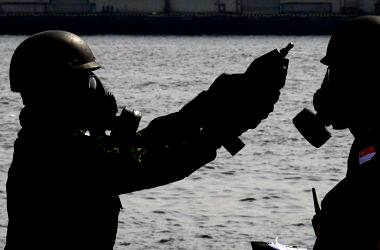United Nations: India has stressed on the need to strengthen implementation of the biological weapons convention in the wake of challenges to international peace and security emanating from threat posed by terrorists and non-state actors seeking access to biological toxins. [caption id=“attachment_1772191” align=“alignleft” width=“380”]
 Representational Image.
Representational Image.
Reuters[/caption] “The use of chemical weapons anywhere and by anyone must be condemned and the international norm against the use of chemical weapons must not be breached,” Ambassador DB Venkatesh Varma, Permanent Representative of India to the UN Conference on Disarmament, said on Friday during a UN General Assembly debate on ‘Other Weapons of Mass Destruction’. He said India remains committed to improving the effectiveness of the Biological Weapons Convention and strengthening its implementation and universalization. “We believe this is necessary in view of the new challenges to international peace and security emanating from proliferation trends, including the threat posed by terrorists or other non-state actors seeking access to biological agents or toxins for terrorist purposes,” Varma added. He underlined the importance attached by India to the Chemical Weapons Convention (CWC) and the Biological Weapons Convention as examples of non-discriminatory treaties in the field of disarmament for the total elimination of specific type of weapons of mass destruction. India reaffirms that disarmament is a primary goal of the chemical weapons convention and should remain the priority till the complete destruction of all chemical weapons is achieved. Varma noted that it is the responsibility of states parties to ensure that their commitments and obligations under the convention are fully and effectively implemented. “We believe that only a multilaterally agreed mechanism for verification of compliance can provide the assurance of observance of compliance obligations by States Parties and act as a deterrent against non-compliance,” he added. India is committed to maintaining the highest international standards with reference to control of chemical, biological and toxin items, he said, adding the country has made considerable progress in its engagement with the Australia Group and other export control regimes with a view to seeking full membership. With a large and growing chemical industry, India has the second largest number of declared facilities. India receives one of the largest number of inspections from the Organisation for the Prohibition of Chemical Weapons (OPCW) and the country has a “flawless” track record of verification inspections. “We believe that the OPCW needs to evolve transparent and objective criteria and moralities for inspections. The provisions of the Convention should be implemented in a manner that does not hinder legitimate activities, especially in countries like India with a large and growing chemical industry,” Varma added. Varma told the UN General Assembly’s First Committee that India has a broad based regulatory framework to prevent the misuse of biological science and technology. He said while confidence building measures are an important transparency measure to enhance trust in implementation of the convention, but they cannot substitute a multilaterally agreed mechanism for verification of compliance. “As a topical subject, sharing perceptions regarding the ongoing outbreak of Ebola virus may be of interest to all,” he said. India completed the destruction of its chemical weapon stockpiles in 2009 within the stipulated time frame under the CWC. Varma said the remaining possessor states should fulfil their obligations within the shortest possible time. India also has strong and law-based national export controls consistent with the highest international standards. PTI
Use of chemical weapons in the world must be condemned: India at UN
FP Archives
• October 25, 2014, 13:27:48 IST
India has stressed on the need to strengthen implementation of the biological weapons convention in the wake of challenges to international peace and security emanating from threat posed by terrorists and non-state actors seeking access to biological toxins.
Advertisement
)